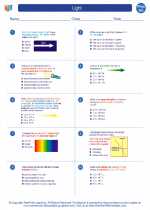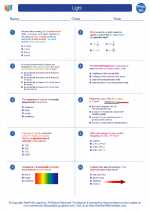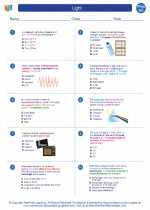Water Resources
Water resources refer to the sources of water that are potentially useful or available for human use. This includes water from natural sources such as rivers, lakes, and groundwater, as well as treated and untreated water for domestic, industrial, and agricultural uses.
Importance of Water Resources
Water is essential for life and is a vital resource for various human activities. It is important for drinking, sanitation, agriculture, industry, and energy production. The availability and quality of water resources directly impact human health, food security, economic development, and environmental sustainability.
Key Concepts and Topics to Study
- Water Cycle: Understand the processes of evaporation, condensation, precipitation, and runoff that characterize the water cycle.
- Surface Water and Groundwater: Learn about the differences between surface water (rivers, lakes, etc.) and groundwater, and the importance of each as water resources.
- Water Quality: Study the factors affecting water quality, including pollution, contaminants, and treatment methods.
- Water Management: Explore the principles of water resource management, including conservation, allocation, and sustainable use.
- Water Scarcity and Conflict: Examine the challenges associated with water scarcity, competing water uses, and potential conflicts over water resources.
- Climate Change and Water Resources: Understand the potential impacts of climate change on water availability, precipitation patterns, and extreme weather events.
Study Tips
When studying water resources, it is helpful to:
- Visualize and understand the water cycle through diagrams and illustrations.
- Explore case studies and examples of water management practices in different regions.
- Stay updated on current issues and research related to water resources, including advancements in water treatment technologies and sustainable water use practices.
- Consider the interdisciplinary nature of water resources, integrating concepts from geography, environmental science, economics, and policy studies.
By mastering the concepts and topics related to water resources, you will gain a comprehensive understanding of the importance of water, the challenges associated with its sustainable management, and the potential solutions to address water-related issues.
.


